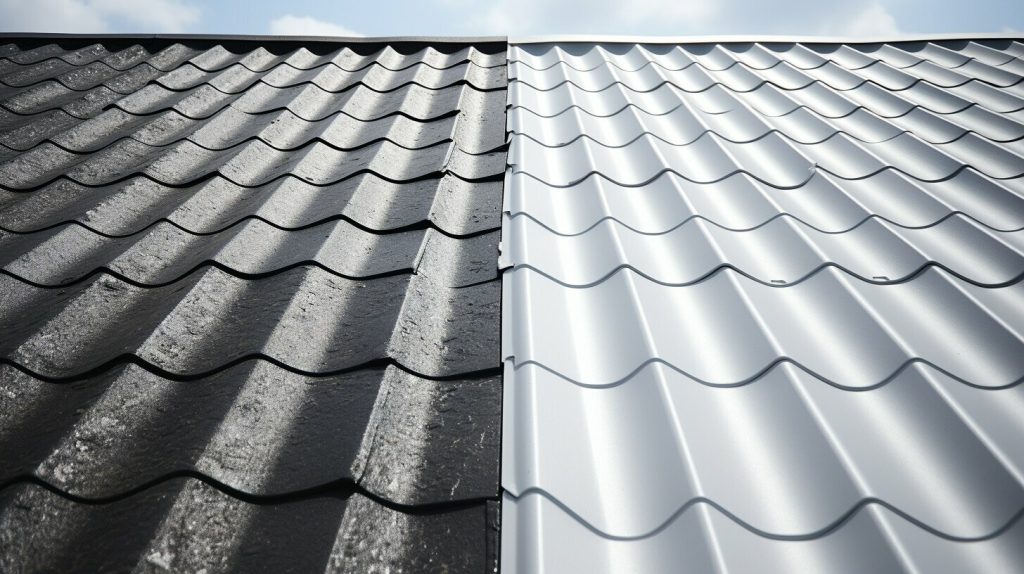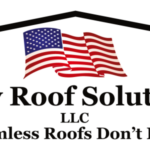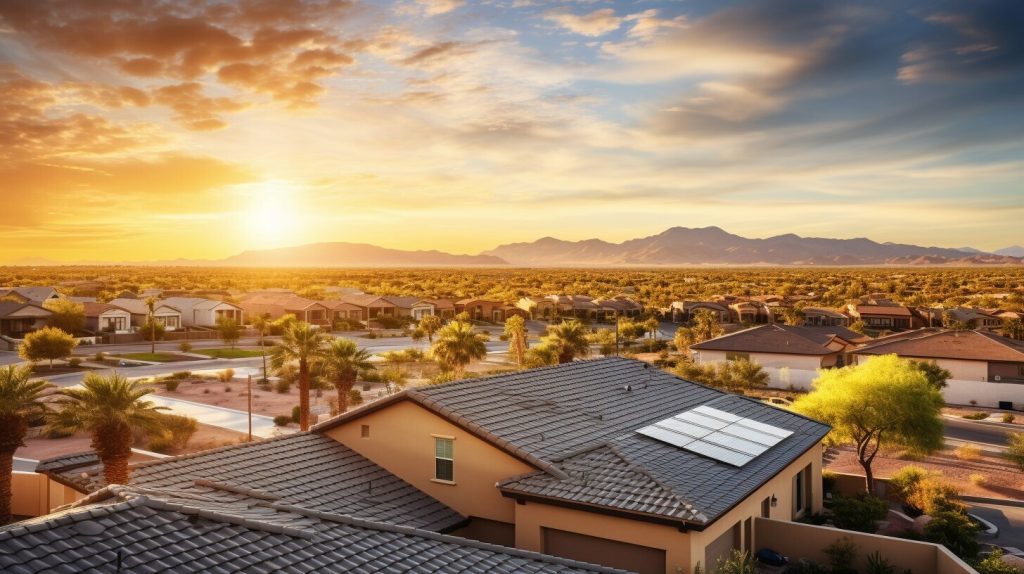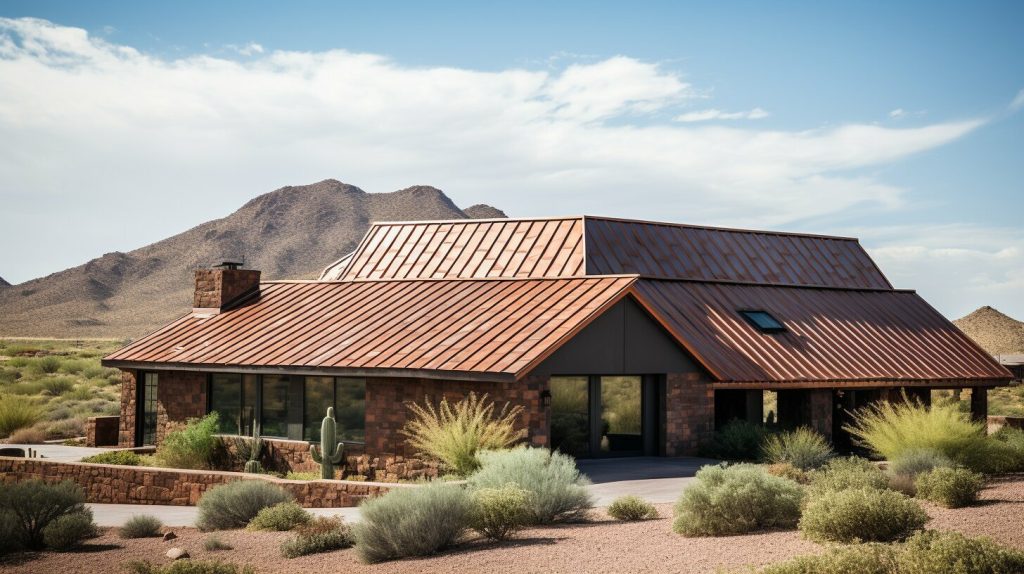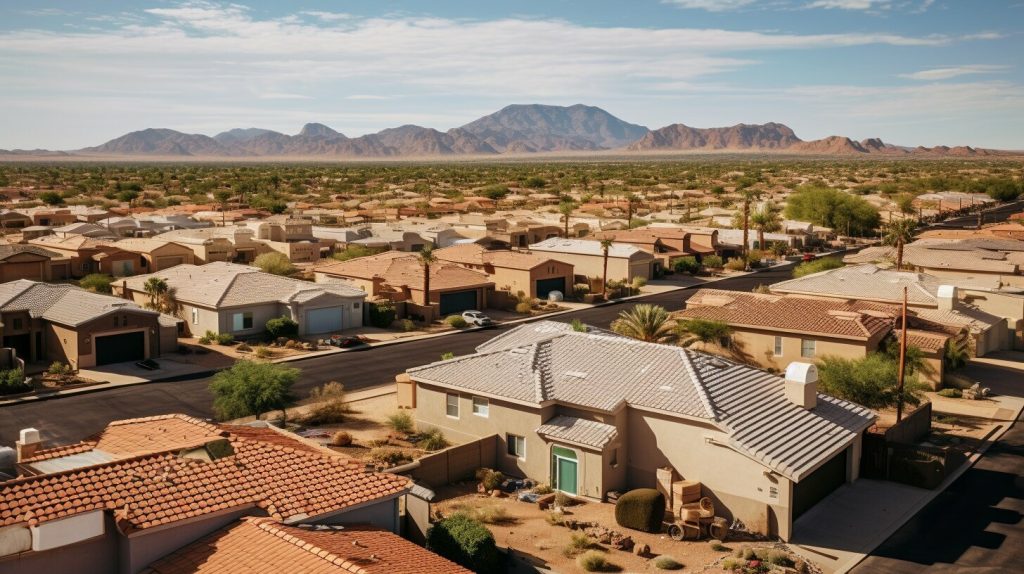As a business owner, protecting your roofing investment is a priority. With a variety of roof coating options available, the decision-making process can be overwhelming. Two popular choices are elastomeric and aluminum roof coatings. Each has its benefits and drawbacks.
In this article, we will explore the pros and cons of elastomeric and aluminum roof coatings. By the end, you’ll have a better understanding of which option may be right for your commercial property.
Key Takeaways:
- Elastomeric and aluminum roof coatings are both popular options for commercial roofs.
- Elastomeric coatings offer a variety of benefits, including flexibility and easy application.
- Aluminum coatings have reflective properties that can improve energy-efficiency and can be exceptionally durable.
- The best choice for your roof coating will depend on factors such as cost, maintenance requirements, and weather conditions.
- Easy Roof Solutions is here to help you make the best decision for your property.
Understanding Elastomeric Roof Coatings
At Easy Roof Solutions, we highly recommend elastomeric roof coatings for our commercial clients, and for good reason. Elastomeric coatings are a popular choice due to their numerous benefits.
Firstly, elastomeric coatings are extremely durable, providing excellent protection against harsh weather conditions, UV rays, and other environmental factors. With proper care and maintenance, elastomeric coatings can last up to 20 years.
Another benefit of elastomeric coatings is their seamless application process. The coating is applied to the roof in liquid form, creating a monolithic, waterproof layer. This eliminates the need for seams and joints, which can be weak points in a roof’s defense against leaks and damage.
The reflective properties of elastomeric coatings also make them an attractive option for businesses looking to reduce their energy costs. By reflecting solar heat away from the roof, elastomeric coatings can help keep your building cooler, reducing the need for air conditioning and lowering your energy bills.
The application process for elastomeric coatings involves several steps, including cleaning and priming the roof surface, applying the coating in multiple layers, and allowing sufficient drying time between coats. While it is possible for building owners to take on this process themselves, we always recommend hiring a professional roofing contractor to ensure the best results and maximum protection for your roof.
Examining Aluminum Roof Coatings
Aluminum roof coatings are a popular option among business owners who want to protect and extend the life of their roofing system. One of the most significant benefits of aluminum coating is its highly reflective properties. Reflectivity plays a crucial role in reducing the amount of heat that penetrates the building, which ultimately lowers energy consumption and costs.
In addition to being energy-efficient, aluminum coatings are also highly durable. They create a protective barrier against weather elements, such as rain, snow, and hail, which can cause significant roof damage over time. Aluminum coatings also help prevent rust and corrosion, which can compromise the structural integrity of the roof.
The Downside of Aluminum Coatings
While aluminum roof coatings have many benefits, there are a few drawbacks to consider. One disadvantage is that aluminum coatings are not suitable for all roofing types. For example, they may not adhere well to some single-ply roofing systems.
Another downside to aluminum coatings is that they may not be as cost-effective as other options, such as elastomeric coatings. While they do provide excellent durability, the initial cost of aluminum coatings can be higher than other coatings.
Is Aluminum Coating Right for Your Roof?
If you are considering an aluminum roof coating, it is essential to assess your roofing system’s needs and compatibility. Aluminum coatings are an excellent choice for flat or low-sloping roofs that receive a lot of direct sunlight. However, they may not be the best option for roofs with many protrusions or slopes, as they may not adhere correctly in these areas.
Overall, aluminum roof coatings are a reliable and effective option for business owners who want to protect their roofs from weather elements and reduce energy costs. At Easy Roof Solutions, we specialize in commercial roofing services and can help you determine if an aluminum coating is the right choice for your building.
Comparing Elastomeric and Aluminum Roof Coatings
Now that we have explored the benefits and drawbacks of elastomeric and aluminum roof coatings individually, it’s time to compare the two options side by side. This comparison will help business owners make an informed decision about which coating is more cost-effective for their roofing needs.
Elastomeric Roof Coatings vs Aluminum Roof Coatings
Let’s start with the comparison of elastomeric roof coatings and aluminum roof coatings. Both coatings provide protection against weather damage, including UV rays, rain, and wind. However, there are a few key differences to consider.
Cost-effectiveness: Elastomeric roof coatings are generally less expensive than aluminum roof coatings. They require fewer layers of application, which reduces the labor and material costs associated with the coating process. However, elastomeric coatings require more frequent maintenance, which can increase long-term costs.
Reflective properties: Aluminum roof coatings are highly reflective and can reflect up to 85% of the sun’s rays. This helps to reduce energy costs by keeping the building cooler and reducing the need for air conditioning. Elastomeric coatings are also reflective, but not to the same extent as aluminum coatings.
Longevity: Both coatings are durable and can protect the roof for several years. However, aluminum roof coatings have a longer lifespan and can last up to 10 years with proper maintenance. Elastomeric coatings, on the other hand, typically last around 5 years.
Which Coating is More Cost-Effective?
When it comes to cost-effectiveness, the choice between elastomeric and aluminum roof coatings depends on the business owner’s budget and long-term goals. While elastomeric coatings may be less expensive upfront, they require more frequent maintenance and may need to be recoated more frequently, increasing long-term costs. On the other hand, aluminum coatings may have a higher upfront cost, but their longer lifespan and energy-saving benefits can provide cost savings in the long run.
Ultimately, the decision between elastomeric and aluminum roof coatings depends on several factors, including the building’s location, climate, and current roofing condition. At Easy Roof Solutions, we offer expert advice and guidance to help business owners choose the best coating for their specific needs.
Conclusion
After weighing the pros and cons of elastomeric and aluminum roof coatings and examining their unique characteristics, we at Easy Roof Solutions have come to a final verdict on the best roof coating option.
The Best Roof Coating
Based on our experience as commercial roofing contractors, we believe that the best roof coating option for most businesses is…drumroll please…elastomeric roof coating!
While aluminum roof coatings are durable and reflective, elastomeric coatings offer superior protection and longevity, making them a more cost-effective option in the long run. Plus, their versatility and ease of application make them a popular choice among business owners.
Choose Easy Roof Solutions
At Easy Roof Solutions, we are committed to helping business owners make informed decisions about their commercial roofing needs. If you are considering a roof coating for your building, our team of experts is here to assist you every step of the way.
Contact us today to schedule a consultation and see how we can help you protect your investment with the best roof coating option for your business.
FAQ
What is the difference between elastomeric and aluminum roof coatings?
Elastomeric roof coatings are made from a flexible, rubber-like material that offers excellent weatherproofing and UV protection. Aluminum roof coatings, on the other hand, contain reflective particles that help to reduce heat buildup and increase energy efficiency.
What are the benefits of elastomeric roof coatings?
Elastomeric roof coatings provide superior waterproofing, UV resistance, and flexibility. They can expand and contract with the roof’s movement, preventing cracks and leaks. Elastomeric coatings also have excellent adhesion properties, making them long-lasting and durable.
How are elastomeric roof coatings applied?
Elastomeric roof coatings are typically applied using a brush, roller, or spray. The surface of the roof should be cleaned and prepared before application. Multiple layers may be required depending on the desired thickness and level of protection.
What are the unique characteristics of aluminum roof coatings?
Aluminum roof coatings are known for their reflective properties, which help to reduce heat transfer and energy consumption. They also offer excellent durability and can protect the roof from the damaging effects of UV rays, weathering, and corrosion.
Are there any drawbacks to using aluminum roof coatings?
One potential drawback of aluminum roof coatings is their limited color options. They typically have a silver or metallic appearance, which may not be suitable for all building aesthetics. Additionally, aluminum coatings may require more regular maintenance to maintain their reflective properties.
How do elastomeric and aluminum roof coatings compare in terms of protection and longevity?
Elastomeric roof coatings provide excellent protection against leaks, cracks, and UV damage. They have a long lifespan and can extend the life of a roof by several years. Aluminum coatings offer superior reflectivity and can help to reduce energy costs. Both coatings have their strengths and can be effective in different situations.
Which roof coating option is more cost-effective?
The cost-effectiveness of elastomeric and aluminum roof coatings can vary depending on factors such as the size of the roof, the condition of the existing roof, and the desired level of protection. It is recommended to consult with a professional roofing contractor to determine the best option based on your specific needs and budget.

